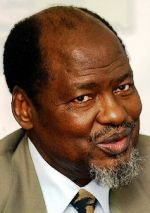Uganda govt, rebels resume talks after three month break
April 26, 2007 (JUBA, Sudan) — Uganda and the rebel Lord’s Resistance Army resumed peace talks Thursday as a UN mediator called it a make-or-break chance to end a brutal 20-year civil war.

Chissano has been a key figure in moves to unblock the talks after a three-month suspension.
“If lost, this opportunity shall never return,” Chissano told the government and rebel delegations attending the talks.
Also present at the opening ceremony were southern Sudan President Salva Kiir; chief mediator and vice president of the region Riek Machar; and other co-mediators from the Democratic Republic of Congo, Kenya, South Africa, Tanzania, and Zambia.
A UN official at the peace talks said both sides were under pressure to create the conditions necessary for the release of women and children believed held by the LRA in northern Uganda, southern Sudan and the eastern DRC.
“We expect the world community to exert pressure on both sides to show some degree of seriousness in this round of talks,” the official said.
“A key indicator of the seriousness of the peace process should be (for) the LRA to release women and children under its captivity,” added the official, who asked to remain anonymous.
A Ugandan official described the start of the talks as “cordial and brotherly.
“I did not see any tension and I hope we are going to move smoothly up to the end because I saw seriousness in both delegations,” Captain Barigye Bakoku, the spokesman for the Ugandan delegation told AFP.
“Tomorrow we are going to start on comprehensive solutions and we will move on to other items on the talks’ agenda.”
The Juba talks are seen as the best chance to end the deadly conflict that has killed tens of thousands and displaced nearly two million in northern Uganda.
They first opened in mid-2006 but stalled in December when the rebels walked out, citing fears for their lives.
The rebels called for a new venue and new mediators, accusing the southern Sudanese autonomous government of bias, but Chissano managed to secure co-mediators from other African states.
On April 14, the LRA agreed to resume negotiations after meeting Chissano.
Both sides also renewed a truce, first agreed last August, for the duration of the peace talks.
Human Rights Watch said Wednesday that war crime suspects in the LRA leadership had to be prosecuted if their region was to achieve durable peace, despite a threat of “no-peace” by indicted rebel supremo Joseph Kony.
Kony, his deputy Vincent Otti and three other commanders have been indicted by the International Criminal Court for crimes against humanity — specifically for murder, rape, mutilations and mass abductions.
The rebels are demanding that the war crimes charges be dropped before they agree to a final peace pact. Ugandan President Yoweri Museveni has said he will not ask the International Criminal Court (ICC) to quash them until the deal is done.
Kony, a self-proclaimed prophet and mystic, claims to be fighting to replace Museveni’s government with one based on the Biblical Ten Commandments.
But his rebel group is better known for atrocities, particularly the kidnapping of an estimated 25,000 children — girls for sex slaves and boys for fighters.
The United Nations and humanitarian groups say that the conflict has spurred one of the world’s worst and most neglected humanitarian crises.
(AFP)
